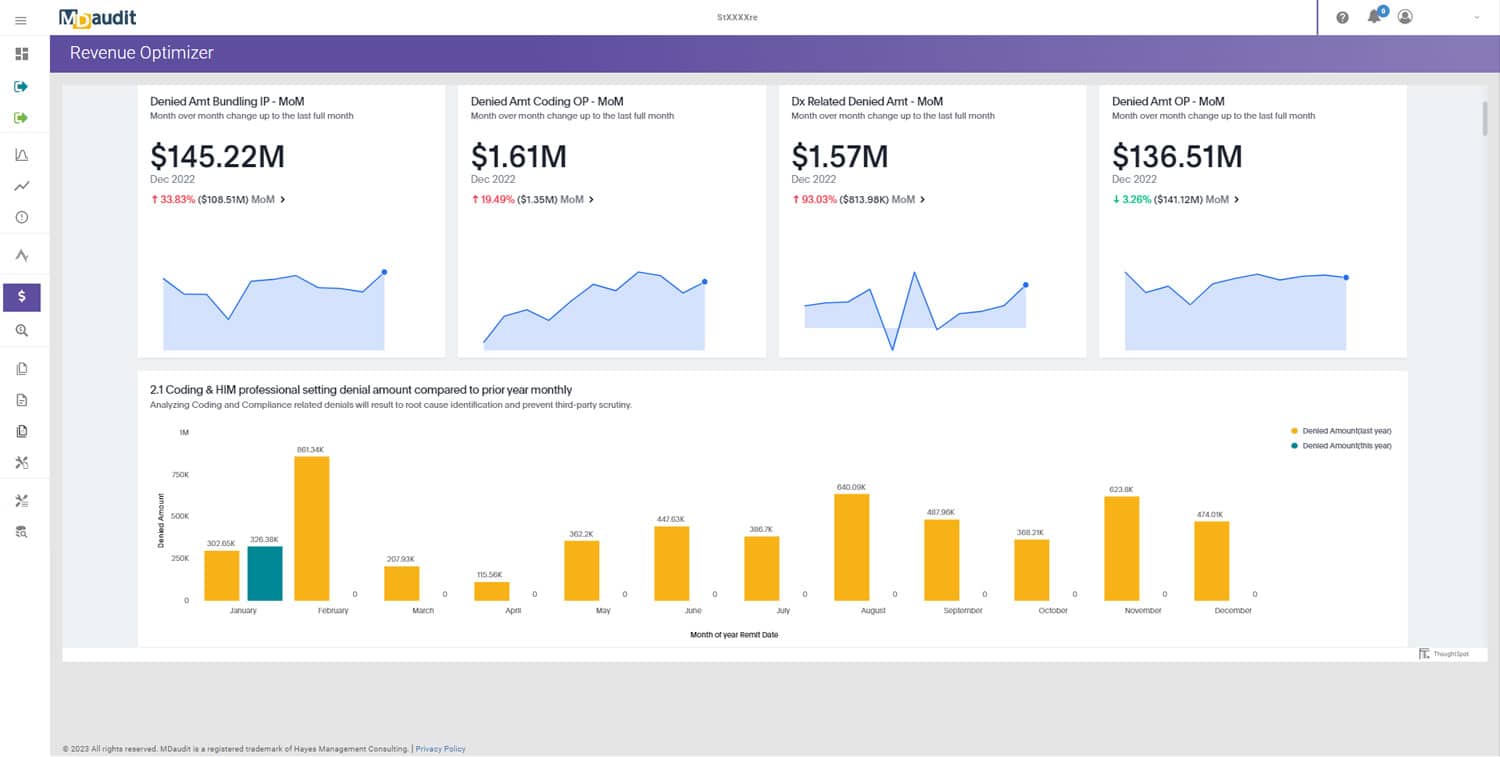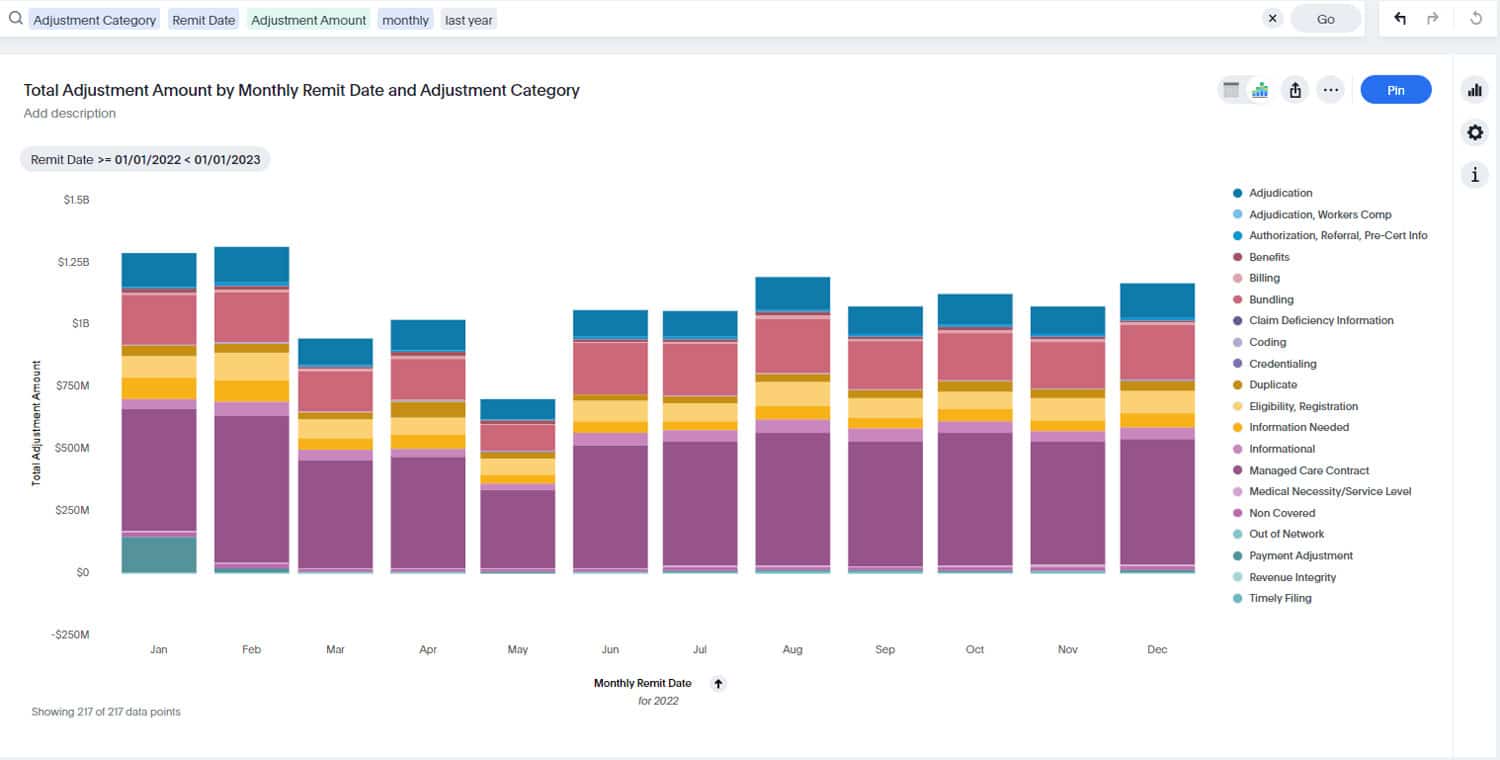The old adage that “information is power” has never been more relevant as the healthcare industry continues to battle the insidious COVID-19 virus. Researchers continue to seek the data that can unlock the therapeutic and curative treatments to defeat the disease.
Billing compliance and auditing teams will also play a vital role in the healthcare industry’s response to the pandemic. With the rapidly changing regulations, both clinicians and healthcare executives are going to lean on billing compliance, coding and revenue integrity professionals to ensure appropriate documentation, coding and billing.
The financial side of the healthcare industry, along with the caregivers, will be taking a severe hit as the virus continues to spread. Finding ways to stem the significant negative impact to the top and bottom lines is especially critical in these uncertain times.
Information can be powerful in this context as well, especially to healthcare billing compliance and revenue integrity leaders. Carefully scrutinizing billing and denials data can hold the key to ensuring the proper capture, coding, billing, and collection of legitimate services rendered during the COVID-19 pandemic.
Many organizations have annual work plans in place that call for ongoing audits of all providers and previously identified risk areas. However periodic, scheduled auditing may not be able to uncover the newer COVID-19 risk areas that must be addressed in this recent crisis. To effectively and rapidly find areas in your revenue cycle that need attention, you need something more. You need audits that are driven by the data in your system. You need to be conducting informed audits – a term we use to describe audits derived from data-driven insights about your organization’s particular compliance and revenue risks.
What is an informed audit?
Informed audits are just that – audits that are informed by a data-driven analysis of your organization’s claims and remit data. The data coming from your billing and medical claims contains everything you need to ensure the revenue integrity of your organization. However, to take full advantage of that data most effectively, you need to turn the data into insight – something that can be accomplished quickly by leveraging the power of informed audits.
Informed audits zero in on specific risk areas, guided by the data in your system. These are the same types of audits being conducted by the OIG, RACs, and MACs. It’s the same methodology used to fuel the CMS Targeted Probe and Education (TPE) program, which identifies organizations with unusual billing patterns and triggers further investigation.
If these regulatory entities are using informed audit methods to review your billing and coding operation, it makes sense that you should be using them as well to stay ahead of these oversight organizations.
Importance of informed audits during COVID-19
With the financial stress your organization is likely to suffer during and after the COVID-19 crisis, it is imperative to maximize your revenue stream. Focusing on areas where there may be risks is critical. Here are four ways informed audits can help your organization minimize billing and reimbursement risks to remain financially stable during the time of COVID-19.
1. Comply with new regulations
Keeping track of, and complying with new regulations and documentation requirements that are being developed to handle the treatment of COVID-19 can cause an undue burden on clinicians, whose main focus is on delivering critical patient care during a public health emergency. The coding and billing groups can relieve this burden by staying on top of the rapidly changing documentation rules and offering tools and resources to assist clinicians in order to ensure complete and accurate documentation, By staying abreast of the evolving guidelines, these groups can make sure clinical documentation is accurate to avoid denials or delayed payments to maintain a consistent cash flow.
Using informed audits, billing compliance and auditing teams can focus in on auditing any claims associated with COVID-19 related conditions (e.g., pneumonia, sepsis, ARDS, lower respiratory, etc.) to ensure the new coding guidelines for COVID-19 and telehealth services are properly applied. The MDaudit Enterprise platform is rapidly incorporating COVID-19 content such as audit worksheets for telehealth, risk analytics that detect outliers, and reports that will allow you to audit and monitor claims directly related to the disease to ensure proper coding and billing.
2. Efficiently conduct remote audits
Complying with social distancing and stay-at-home guidelines means many auditors are not able to get to their hospitals to conduct the audits necessary to maintain compliance and help ensure clean claim submission. Working remotely presents challenges to the auditing process.
Using cloud-based auditing technologies, healthcare billing compliance and revenue integrity professionals can conduct informed audits from a secure web browser. Our MDaudit Enterprise platform is a web-based application, so auditors are able to log in remotely and conduct informed audits to drill into critical risk areas. They are still able to leverage all the benefits and features of MDaudit Enterprise to help support the coding and billing teams who are facing increased complexity because of all the changes happening around them.
3. Allow auditors to be self-sufficient
To conduct the type of informed audits that will identify key risk areas, auditors often have to rely on support from their organization’s IT department to put together the necessary reports. As organizations move to mobilize a remote workforce during the crisis, IT groups are overburdened trying to maintain connectivity and productivity. The delays already inherent in going outside their department to get the needed reports and information from IT grow exponentially.
MDaudit Enterprise enables auditors to be self-reliant since they can easily identify concerning trends, drill down into issues, and rapidly pull cases to conduct informed audits. This real-time analytics capability helps the auditing team stay on track without the need for resource help outside their department.
4. Minimize post-COVID-19 audit backlog
During the crisis, normal audit schedules will likely be disrupted. Once COVID-19 is under control and healthcare organizations get back to some semblance of normalcy, it may be difficult for auditing teams to make up for lost time.
Instead of returning to periodic auditing schedules, billing compliance and auditing teams may be better served moving to a risk-based auditing plan. Leveraging a platform like MDaudit Enterprise to conduct these informed audits will allow organizations to focus their efforts on key risk areas rather than expending limited auditing resources on random scheduled audits.
Informed audits are hugely helpful in deriving insights from an organization’s billing and coding data in normal times. They are even more valuable in a crisis like the one healthcare organizations are facing today, where they can help streamline the audit function to maintain an accepted level of compliance and keep the important revenue stream flowing.
Learn more about how we can help
Interested in learning more about how MDaudit can help your team conduct informed audits? See for yourself how MDaudit Enterprise works by watching an on-demand demonstration or request a custom demonstration below.






